
Lughaya Beach: A Hidden Gem on the Somali Coast
Lughaya Beach, located in the northwestern region of Somalia, is a pristine and serene destination that offers a unique experience for those seeking tranquility and natural beauty. This unspoiled beach is a perfect getaway for travelers looking to escape the hustle and bustle of city life and immerse themselves in the soothing sounds of the ocean. The beach stretches for miles, providing plenty of space for peaceful walks along the shore. The crystal-clear waters are ideal for swimming and snorkeling, allowing visitors to explore the vibrant marine life that thrives in the area. The surrounding landscape is dotted with picturesque sand dunes and rocky outcrops, adding to the scenic charm of Lughaya Beach. Beyond its natural allure, Lughaya Beach also offers a glimpse into the local culture. The nearby town of Lughaya is home to a friendly and welcoming community, where visitors can experience traditional Somali hospitality. Whether it's enjoying freshly caught seafood at a local eatery or witnessing the daily activities of the fishing boats, the beach provides an authentic and enriching travel experience.
Local tips in Lughaya Beach
- Visit during the cooler months from November to February for the most pleasant weather.
- Bring your own snorkeling gear as rental shops are limited in the area.
- Respect local customs and dress modestly, especially when visiting nearby villages.
- Carry cash as credit card facilities may not be widely available.
- Try the local seafood dishes, which are fresh and flavorful.
Lughaya Beach: A Hidden Gem on the Somali Coast
Lughaya Beach, located in the northwestern region of Somalia, is a pristine and serene destination that offers a unique experience for those seeking tranquility and natural beauty. This unspoiled beach is a perfect getaway for travelers looking to escape the hustle and bustle of city life and immerse themselves in the soothing sounds of the ocean. The beach stretches for miles, providing plenty of space for peaceful walks along the shore. The crystal-clear waters are ideal for swimming and snorkeling, allowing visitors to explore the vibrant marine life that thrives in the area. The surrounding landscape is dotted with picturesque sand dunes and rocky outcrops, adding to the scenic charm of Lughaya Beach. Beyond its natural allure, Lughaya Beach also offers a glimpse into the local culture. The nearby town of Lughaya is home to a friendly and welcoming community, where visitors can experience traditional Somali hospitality. Whether it's enjoying freshly caught seafood at a local eatery or witnessing the daily activities of the fishing boats, the beach provides an authentic and enriching travel experience.
When is the best time to go to Lughaya Beach?
Iconic landmarks you can’t miss
Masjidka Isbahaysiga,(Mogadishu Central Mosque)
Discover the architectural beauty and spiritual significance of Mogadishu Central Mosque, a must-visit landmark in Somalia's vibrant capital.
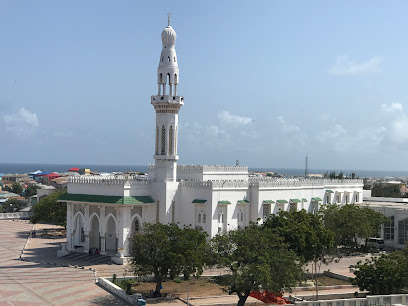
Liido beach
Discover the serene beauty of Liido Beach, a vibrant coastal gem in Mogadishu, where relaxation meets rich Somali culture and stunning ocean views.
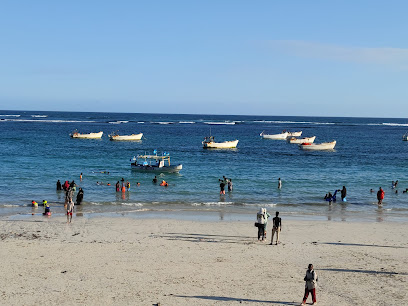
The Tomb of the Unknown Soldier
Explore the Tomb of the Unknown Soldier in Mogadishu, a poignant tribute to bravery and sacrifice, reflecting Somalia's rich history and resilience.
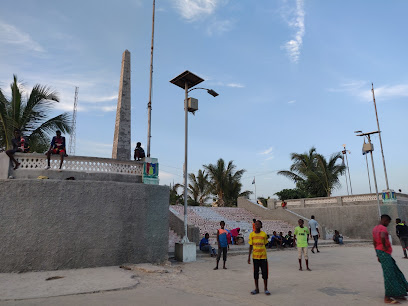
Laas Geel tour Safaris Tourism Company
Discover Laas Geel, an ancient rock art site in Somaliland that showcases captivating prehistoric paintings and offers a glimpse into the region's rich history.
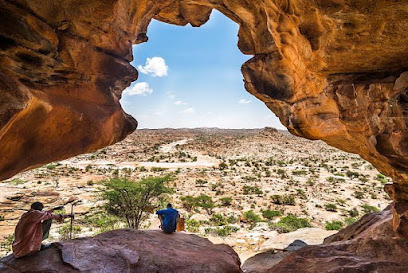
JAZEERA BEACH
Experience the beauty and culture of Jazeera Beach in Mogadishu, a serene escape with stunning ocean views and local flavors.
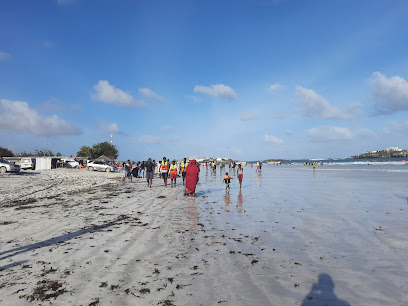
Cattedrale di Mogadiscio
Explore the architectural beauty and historical significance of the Cattedrale di Mogadiscio, a cultural landmark in Somalia's capital city.
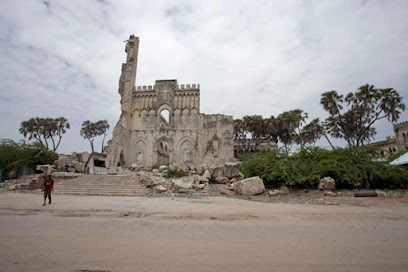
Hargeisa War Memorial Park
Discover the Hargeisa War Memorial Park, a serene tribute to resilience, rich in history and beauty, perfect for reflection and leisure in Somaliland.
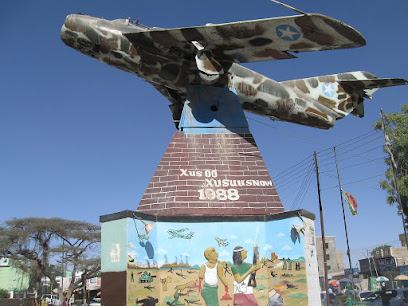
Visit Mogadishu
Explore the rich culture, history, and stunning beaches of Mogadishu, Somalia's vibrant capital city, where tradition meets modernity.
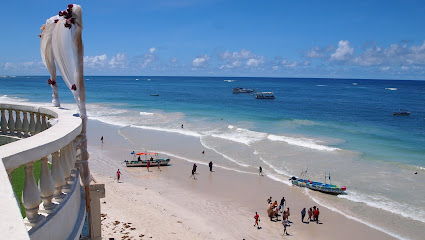
Almnara Tower
Discover the rich history and breathtaking views at Almnara Tower, a prominent landmark in Mogadishu that embodies the spirit of Somalia.
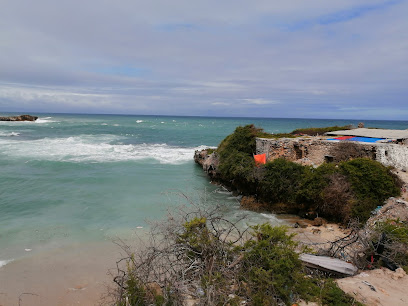
Somali National Museum
Immerse yourself in Somalia's rich history at the Somali National Museum, showcasing artifacts and artworks that reflect the nation's diverse cultural heritage.
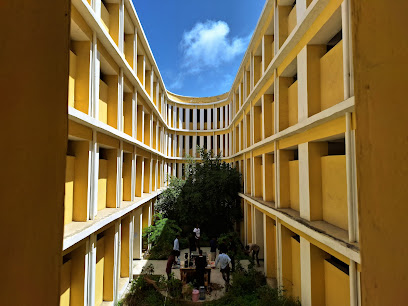
Geel laqe
Explore Geel Laqe, a captivating tourist attraction in Mogadishu, showcasing Somalia's rich culture and history amid the vibrant local atmosphere.
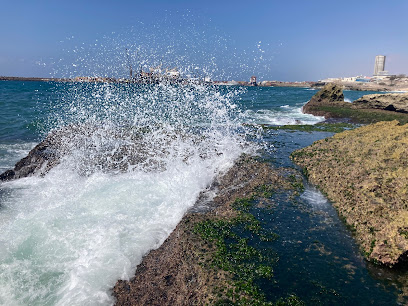
Botiala
Explore the ancient archaeological site of Botiala in Qandala, Somalia, and uncover the rich history and stunning landscapes of this captivating destination.
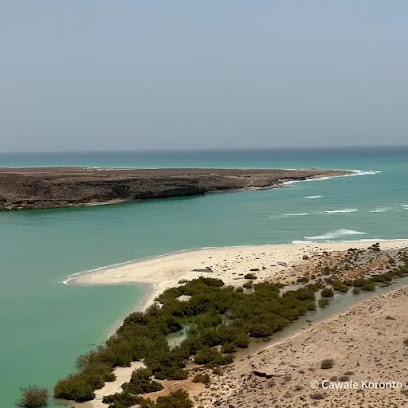
Unmissable attractions to see
Bakaara Market
Explore the vibrant Bakaara Market in Mogadishu, a lively hub of culture, cuisine, and commerce in Somalia's capital.
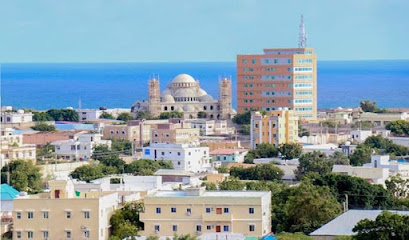
Masjidka Isbahaysiga,(Mogadishu Central Mosque)
Explore the magnificent Masjidka Isbahaysiga, a stunning mosque in Mogadishu, symbolizing cultural resilience and spiritual unity.
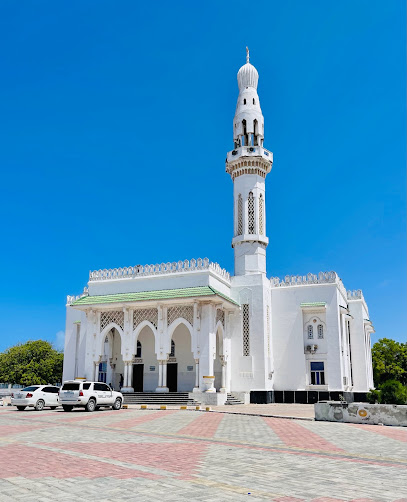
Peace Garden Park
Explore the serene beauty of Peace Garden Park in Mogadishu, an oasis of tranquility amidst the vibrant city life.
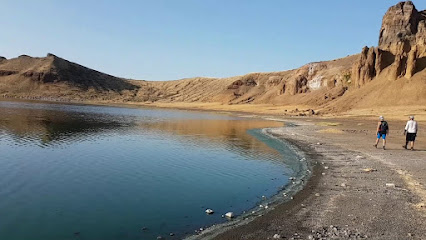
JAZEERA BEACH
Explore Jazeera Beach, a stunning coastal paradise in Mogadishu, where golden sands meet azure waters and vibrant beach life awaits.
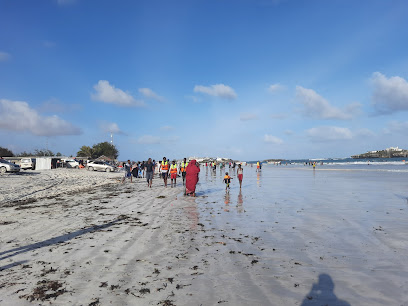
Cattedrale di Mogadiscio
Explore the architectural beauty and historical significance of Cattedrale di Mogadiscio, a cultural landmark in the heart of Somalia's vibrant capital.
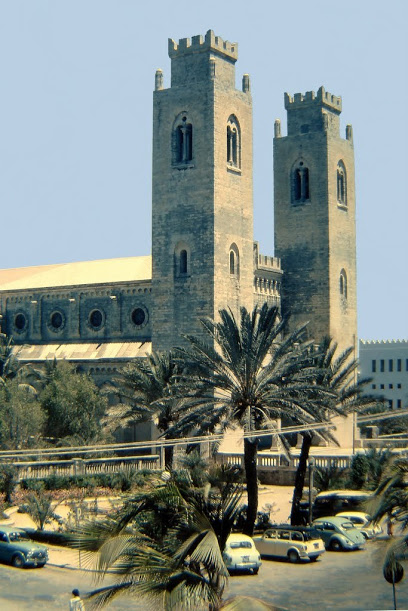
Almnara Tower
Uncover the rich history and stunning views from Almnara Tower, a historical landmark that showcases the resilience of Mogadishu's architectural heritage.
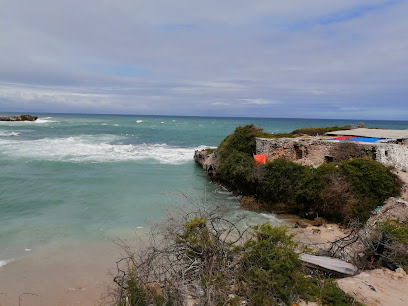
Mogadishu Tourist Village
Explore the serene Mogadishu Tourist Village, a tranquil retreat showcasing Somalia's natural beauty and vibrant culture in the heart of Mogadishu.
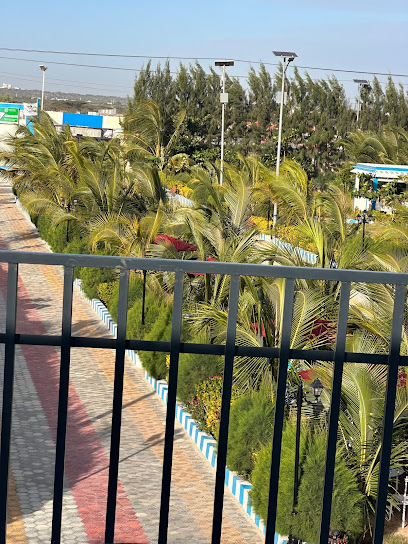
Somali National Museum
Discover the cultural treasures of Somalia at the Somali National Museum, where history and art come to life in the heart of Mogadishu.
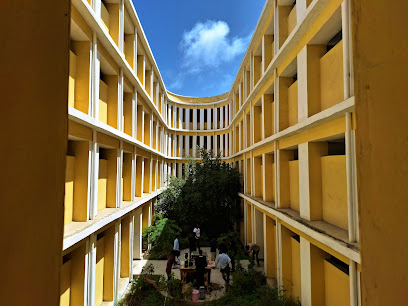
Essential places to dine
Pizza House
Experience the best pizza in Mogadishu at Pizza House – where local tastes meet international flair in every slice.
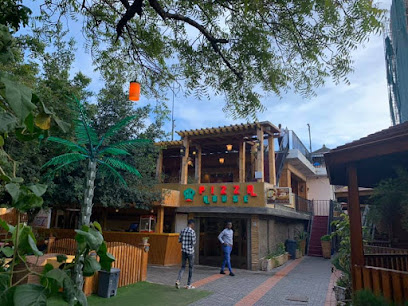
Beach View restaurant
Discover culinary delights at Beach View Restaurant, where fresh seafood meets breathtaking ocean views in Mogadishu.
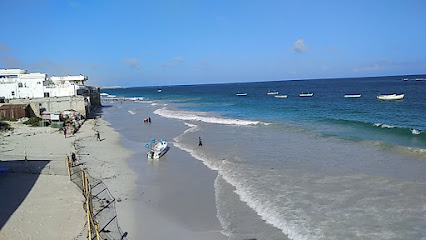
Carshi
Experience authentic Somali cuisine at Carshi – where local flavors meet international flair in the heart of Mogadishu.
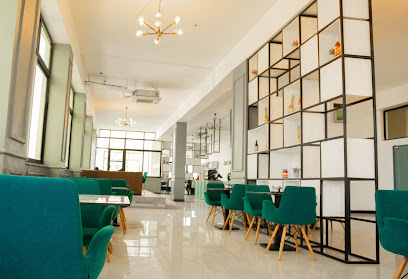
Salsabiil Restaurant
Discover authentic Somali cuisine at Salsabiil Restaurant in Mogadishu – where tradition meets flavor in every bite.
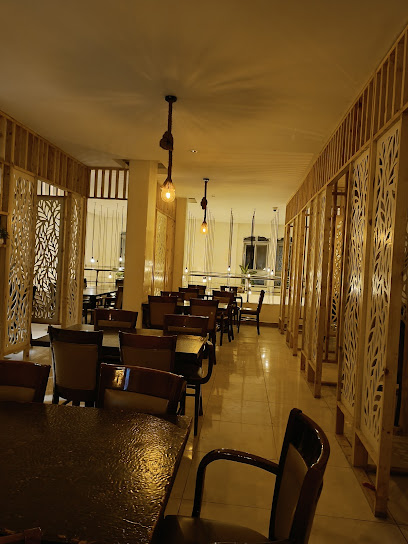
Zaytuun Restaurant
Discover exquisite Somali cuisine blended with international flavors at Zaytuun Restaurant in Mogadishu – a true culinary delight.
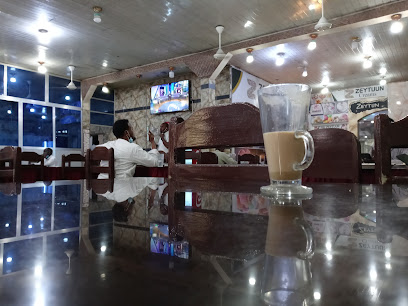
Rio Palace
Discover authentic Somali flavors at Rio Palace in Mogadishu—where tradition meets taste in a vibrant dining experience.
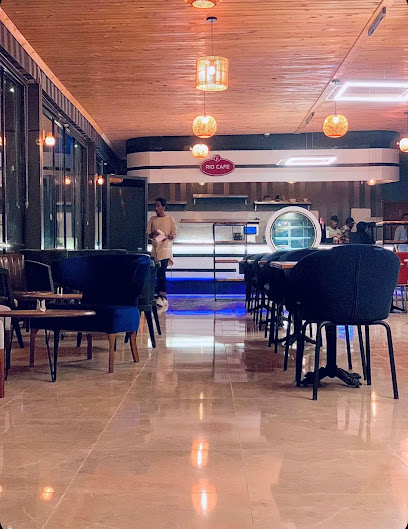
Ocean View Mogadishu
Discover exquisite seafood dining at Ocean View Mogadishu, where fresh flavors meet breathtaking ocean views in Somalia's capital.
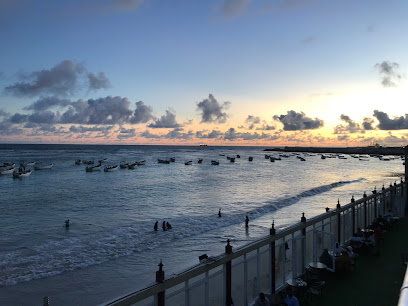
Saalax Restaurant
Experience authentic Somali cuisine at Saalax Restaurant in Jowhaar - where every meal is a cultural journey.
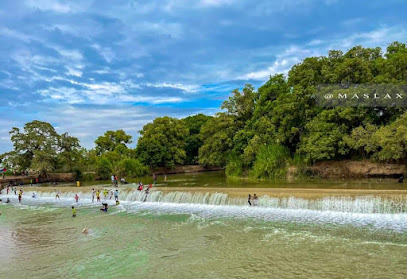
The Village Restaurant
Experience the rich flavors of Somali cuisine at The Village Restaurant in Jazeera – where every meal tells a story.
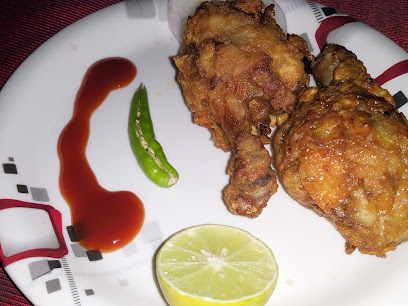
Liido Seafood
Experience fresh seafood delights at Liido Seafood in Mogadishu, where coastal charm meets culinary excellence.
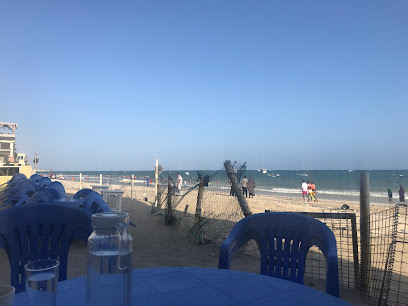
Jaziira Beach Restaurant - Makhayad
Experience exquisite dining at Jaziira Beach Restaurant in Jazeera, where fresh seafood meets breathtaking ocean views.
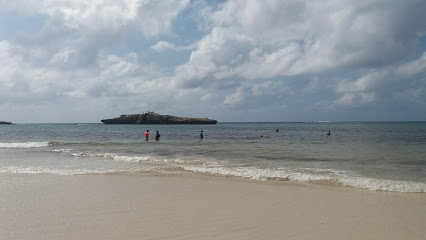
Tufaax Restaurant at Hotel Guuleed
Savor exquisite flavors at Tufaax Restaurant—Mogadishu's premier dining destination for Somali and Arabic cuisine.
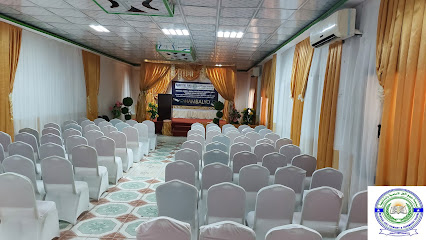
Dilek Somalia
Discover Dilek Somalia in Mogadishu - where traditional flavors meet modern dining in a welcoming atmosphere.
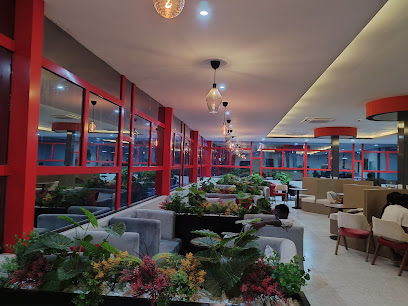
Fatxi Restaurant
Experience authentic Somali flavors at Fatxi Restaurant in Mogadishu – where culinary tradition meets warm hospitality.

SHABEELE RESTAURANT & FAST FOOD
Discover authentic Somali cuisine and fast food at Shabeele Restaurant & Fast Food in Mogadishu – a culinary experience not to be missed!
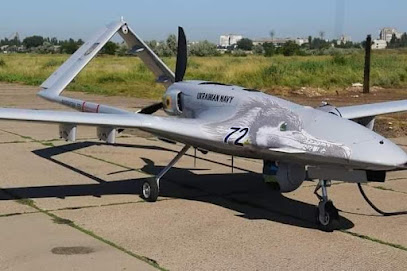
Markets, malls and hidden boutiques
Dahabshiil Business Centre
Discover the heart of Hargeisa at Dahabshiil Business Centre, where shopping meets local culture in a lively atmosphere.
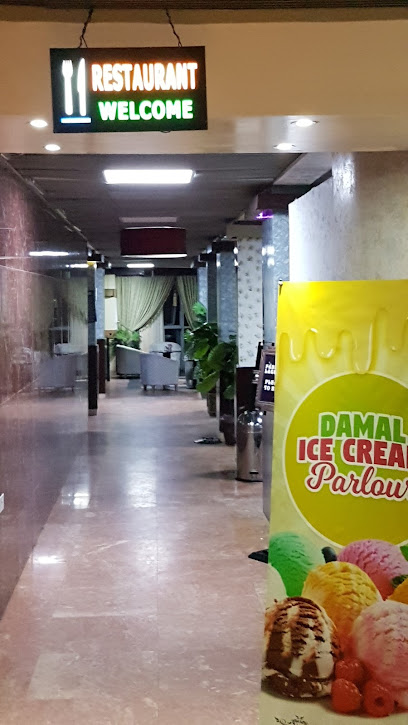
BIN AARIF
Discover shopping, dining, and entertainment at BIN AARIF, Mogadishu's premier shopping mall, blending local culture with modern retail experiences.
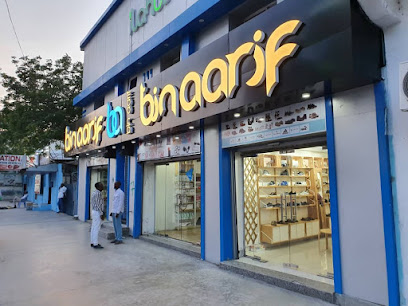
Udug Flower
Discover unique souvenirs and local crafts at Udug Flower, a charming gift shop in the heart of Mogadishu, showcasing Somali artistry.
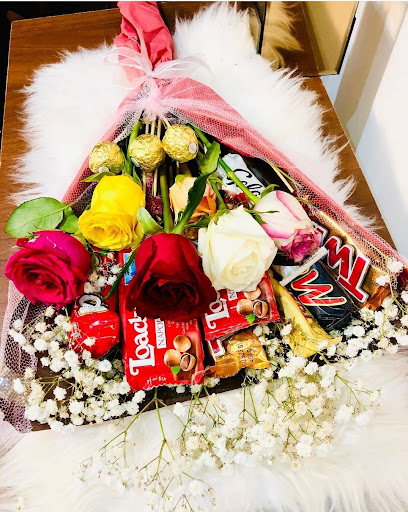
Sobigdeal.shop
Explore the vibrant e-commerce landscape at Sobigdeal.shop in Hargeisa, offering a diverse selection of products that celebrate Somali culture.
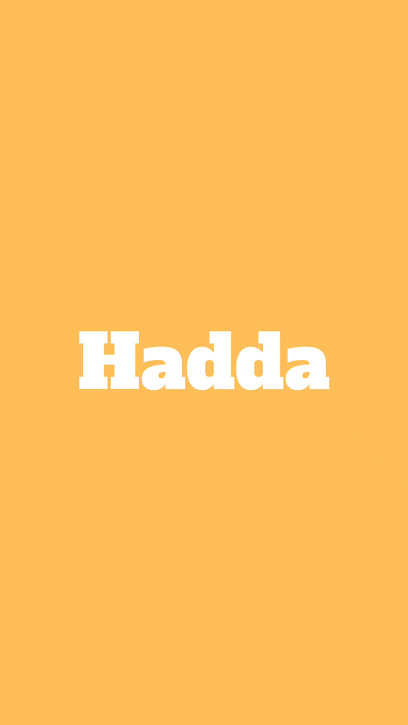
Xarago Shopping Center
Discover the vibrant Xarago Shopping Center in Mogadishu, where shopping meets local culture and delightful dining options await.

Jamta Shop
Explore Jamta Shop in Burco for unique handcrafted gifts and authentic Somali artifacts, celebrating the rich culture of the region.
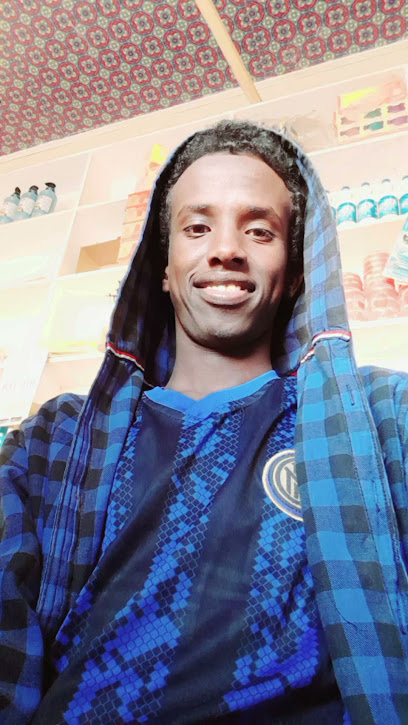
CASUUR for fashion and more
Explore CASUUR in Mogadishu: A vibrant shopping mall showcasing fashion, local crafts, and delicious cuisine.
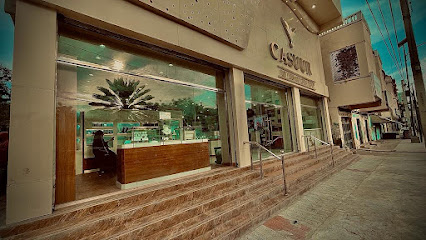
Sahil Gift and Decoration
Explore Sahil Gift and Decoration in Berbera for unique souvenirs showcasing Somali craftsmanship and culture.
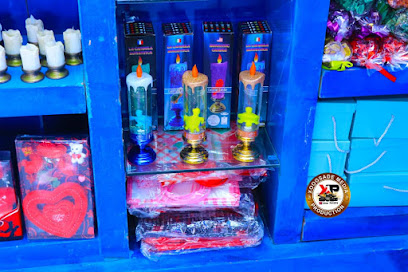
Osob gifts
Explore Osob Gifts in Hargeisa for one-of-a-kind souvenirs that reflect the rich culture and artistry of Somalia, ideal for any traveler.
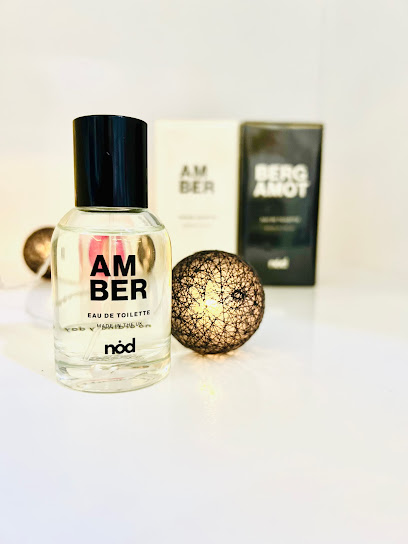
Riyaaq Shopping Center
Experience the essence of Mogadishu at Riyaaq Shopping Center, where shopping, dining, and culture converge in a vibrant atmosphere.
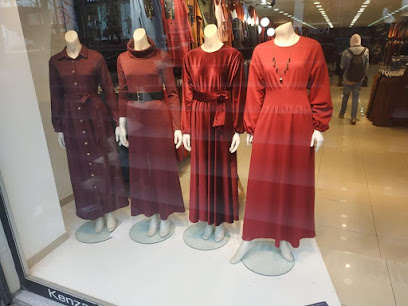
HU
Explore HU Clothing Store in Mogadishu for a blend of traditional and modern Somali fashion that reflects the vibrant culture of the region.
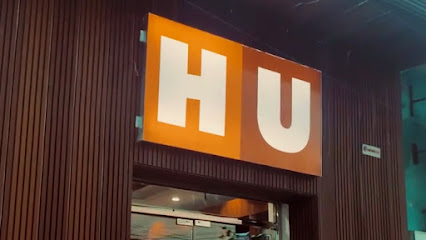
Miigane Gift Shop
Explore the vibrant culture of Somalia through unique handcrafted items at Miigane Gift Shop in Hargeisa.
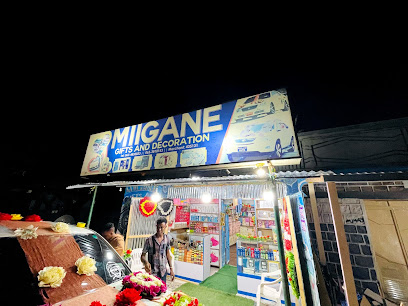
Amoore Gifts
Discover unique Somali crafts and souvenirs at Amoore Gifts, a charming shop in Mogadishu celebrating local culture and craftsmanship.

Cawaale supermarket
Explore the rich culture of Somalia with unique gifts and souvenirs at Cawaale Supermarket in the heart of Mogadishu.
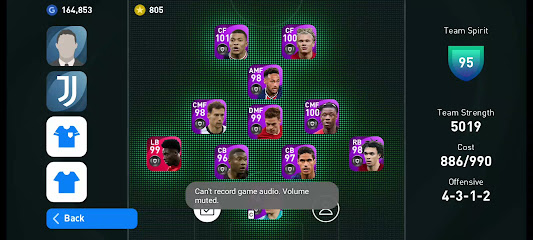
Hiigsi style
Explore the vibrant styles and unique fashion offerings at Hiigsi Style, Burco's premier women's clothing destination.
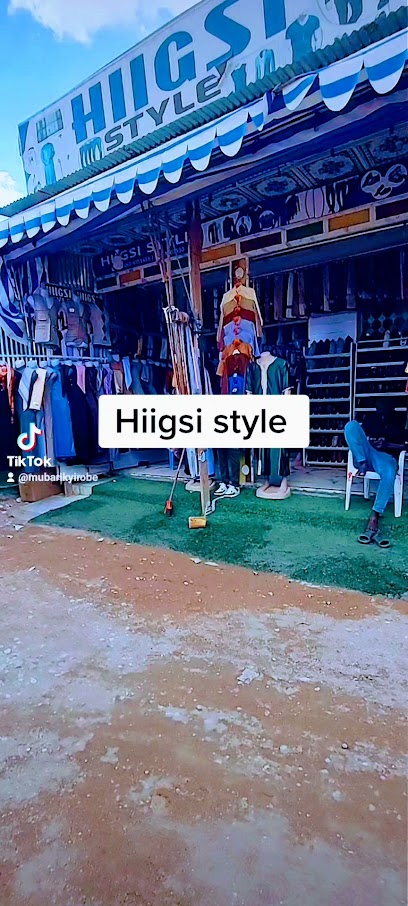
Essential bars & hidden hideouts
Beach View restaurant
Discover the perfect blend of breathtaking ocean views and exquisite seafood at Beach View Restaurant in Muqdisho.
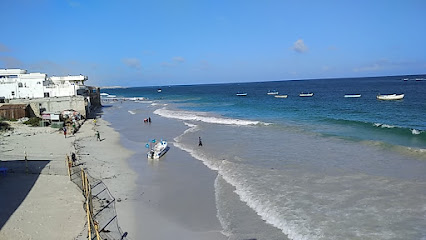
Carshi
Experience the flavors of Mogadishu at Carshi, a top-rated restaurant offering delicious Somali and international cuisine in a welcoming atmosphere.
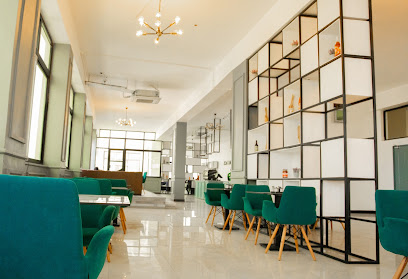
The Village Sports Cafe
Experience the vibrant flavors of East Africa at The Village Sports Cafe, a culinary gem in the heart of Mogadishu, perfect for tourists and locals alike.
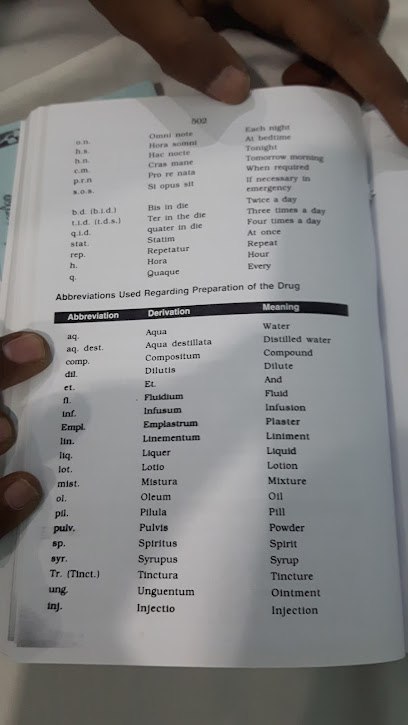
Salool Café
Experience the vibrant spirit of Mogadishu at Salool Café, where rich coffee blends meet local hospitality in a cozy setting.
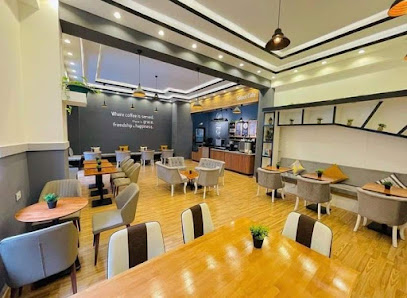
5 Gen Cafe
Experience the vibrant coffee culture of Mogadishu at 5 Gen Cafe, where local flavors meet a cozy atmosphere.
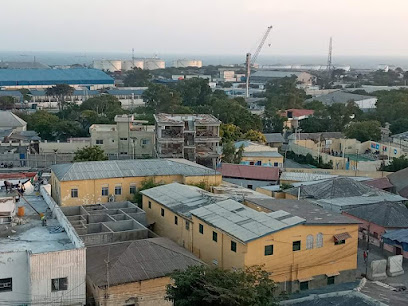
Banadir Beach Club
Immerse yourself in the vibrant nightlife of Mogadishu at Banadir Beach Club, where culture, cuisine, and community come together.
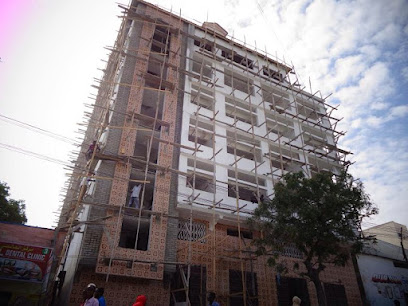
Tufaax Restaurant at Hotel Guuleed
Discover the rich flavors of Mogadishu at Tufaax Restaurant, where traditional and modern cuisine meets in a vibrant dining atmosphere.
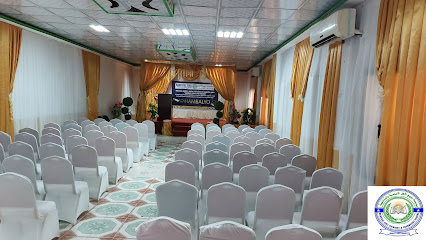
Mounta Sinay
Discover the heart of Mogadishu's nightlife at Mounta Sinay, a lively bar offering a unique blend of local and international drinks in a vibrant atmosphere.
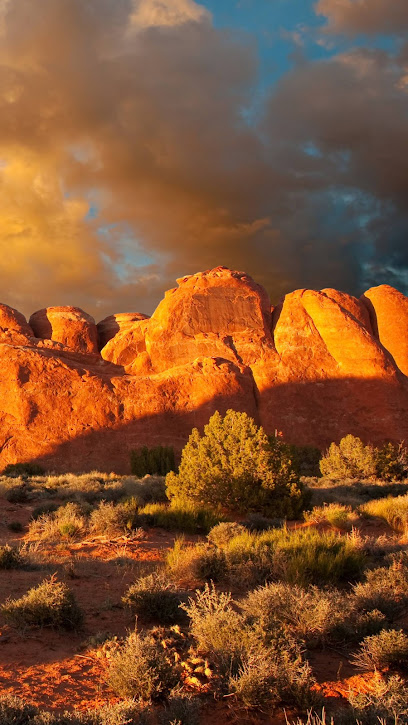
Humbaal Beach
Experience the tranquil beauty of Humbaal Beach in Mogadishu, a serene escape with stunning coastal views and vibrant local culture.
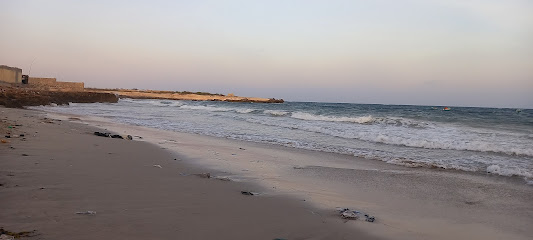
Pearl Beach Restaurant
Experience the flavors of Somalia with stunning ocean views at Pearl Beach Restaurant in Mogadishu.
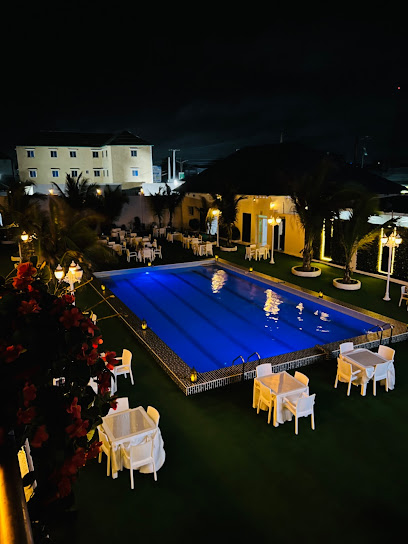
252 Restaurant
Experience the vibrant flavors of Somalia at 252 Restaurant, a top dining destination in Mogadishu's Talex area, offering a diverse menu and warm hospitality.
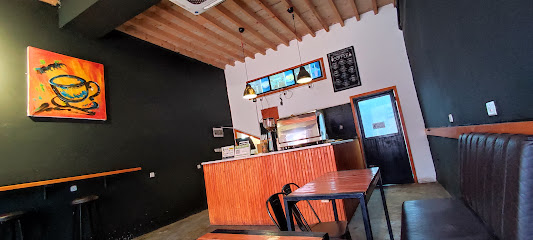
Xarunta canaha geelka saciid foorshe
Discover the unique taste of camel milk at Xarunta Canaha Geelka Saciid Foorshe, a vibrant bar blending local culture and refreshing beverages in Mogadishu.
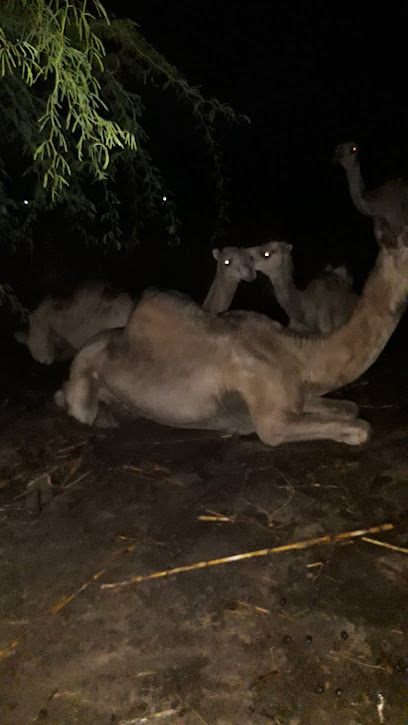
Relax place
Discover the serene atmosphere of Relax Place in Mogadishu, where relaxation meets the vibrant local nightlife for an unforgettable experience.
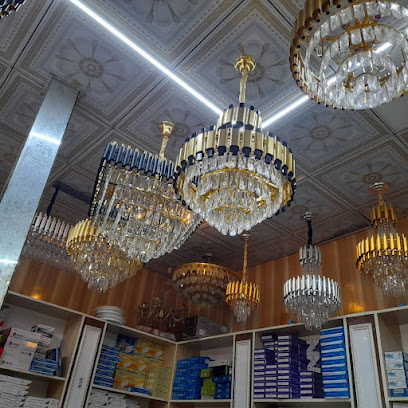
Baar Bulsho
Discover the vibrant nightlife at Baar Bulsho, a lively bar in Mogadishu offering a unique blend of local culture and refreshing drinks.
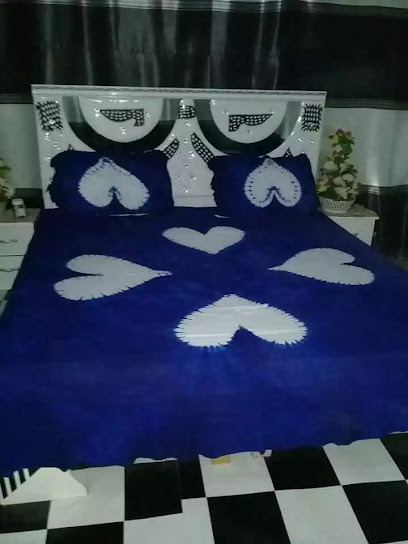
Local Phrases about Lughaya Beach
-
- HelloSalaam
[sa-laam] - GoodbyeNabadgalyo
[na-bad-gal-yo] - YesHaa
[haa] - NoMaya
[ma-ya] - Please/You're welcomeMar kale
[mar ka-le] - Thank youMahadsanid
[ma-had-sa-nid] - Excuse me/SorryNabadgalyo
[na-bad-gal-yo] - How are you?Sidee tahay?
[si-dee ta-hay] - Fine. And you?Fiican. Adigu maxaa?
[fiican. a-di-gu ma-xaa] - Do you speak English?Ma ku hadashaa Af Ingiriis?
[ma ku ha-da-shaa af in-gi-riis] - I don't understandMa fahmin
[ma fah-min]
- HelloSalaam
-
- I'd like to see the menu, pleaseFadlan anigu waxaan arki karaa qalabka
[fad-lan a-ni-gu wa-xaan ar-ki ka-raa qa-la-bka] - I don't eat meatAniga waxaan kari karaa hilibta
[a-ni-ga wa-xaan ka-ri ka-raa hi-lib-ta] - Cheers!Farxada
[far-xa-da] - I would like to pay, pleaseFadlan aniga waan ku bixin lahaa
[fad-lan a-ni-ga wa-an ku bi-xin la-haa]
- I'd like to see the menu, pleaseFadlan anigu waxaan arki karaa qalabka
-
- Help!Caawin!
[caa-win] - Go away!Tag!
[tag] - Call the Police!Wac poliis!
[wac po-liis] - Call a doctor!Wac dhakhtar!
[wac dha-khtar] - I'm lostAniga waxaan galaaftay
[a-ni-ga wa-xaan ga-laaftay] - I'm illAniga waxaan jiraa
[a-ni-ga wa-xaan ji-raa]
- Help!Caawin!
-
- I'd like to buy...Aniga baan rabaa inaan iibso...
[a-ni-ga baan ra-baa i-naan ii-bso] - I'm just lookingAniga waxaan arki karaa
[a-ni-ga wa-xaan ar-ki ka-raa] - How much is it?Haddii aad iga eegto, sidee baan ugu iibin lahaa?
[had-di aad i-ga ee-gto, si-dee baan u-gu ii-bin la-haa] - That's too expensiveWaa qurux badan
[waa qu-ru-x ba-dan] - Can you lower the price?Ma iibsan kartaa qiimaha?
[ma ii-bsan kar-taa qi-i-ma-ha]
- I'd like to buy...Aniga baan rabaa inaan iibso...
-
- What time is it?Waa maxaa wakhtiga?
[waa ma-xaa wakh-ti-ga] - It's one o'clockWaa hal saac
[waa hal saac] - Half past (10)Dhamey (10)
[dha-mey (10)] - MorningSubax
[su-bax] - AfternoonGalab
[ga-lab] - EveningHabeen
[ha-been] - YesterdayShalay
[sha-lay] - TodayMaanta
[maan-ta] - TomorrowBerri
[ber-ri] - 1Hal
[hal] - 2Laba
[la-ba] - 3Saddex
[sad-dex] - 4Afar
[a-far] - 5Shan
[shaan] - 6Lix
[lix] - 7Toddobaad
[tod-do-baad] - 8Sideed
[si-deed] - 9Sagaal
[sa-gaal] - 10Toban
[to-ban]
- What time is it?Waa maxaa wakhtiga?
-
- Where's a/the...?Halkan waa...?
[hal-kan waa] - What's the address?Waa meelaha?
[waa mee-la-ha] - Can you show me (on the map)?Ma ku wareegi karaa (khariidka)?
[ma ku wa-ree-gi kar-taa (kha-riid-ka)] - When's the next (bus)?Marka hore (baas) ka dhacaysaa?
[mar-ka ho-re (baas) ka dha-ca-y-saa] - A ticket (to ....)Gacan (ila ...)
[ga-can (i-la ...)]
- Where's a/the...?Halkan waa...?
History of Lughaya Beach
-
Lughaya Beach has been a critical point in ancient maritime trade routes, connecting the Horn of Africa with the Arabian Peninsula and beyond. Archaeological evidence suggests that traders from ancient Egypt, Greece, and Rome frequented this coast for its strategic location and resources.
-
During the medieval period, Lughaya Beach was part of the powerful Sultanate of Adal. This Sultanate played a significant role in the regional politics and trade, leaving behind a legacy of fortified settlements and cultural exchanges that can still be observed in the area.
-
Lughaya Beach and its surrounding areas experienced colonial pressures from European powers in the late 19th and early 20th centuries. The British and Italians vied for control, which had lasting impacts on the local governance and infrastructure.
-
Following Somalia's independence in 1960, Lughaya Beach saw various developmental projects aimed at boosting local tourism and economy. Despite the challenges faced by Somalia, the area has remained a testament to resilience and cultural richness.
-
Lughaya Beach is home to a vibrant culture that reflects the diverse influences it has absorbed over centuries. Traditional Somali music, dance, and art are integral parts of the community, often showcased during local festivals and gatherings.
Lughaya Beach Essentials
-
Lughaya Beach is located in the northwestern part of Somalia, in the Awdal region. The nearest international airport is Egal International Airport in Hargeisa, which is approximately 220 kilometers away. From Hargeisa, you can take a domestic flight to Borama or Berbera, and then travel by road to Lughaya. Alternatively, you can hire a private car or take a bus from Hargeisa directly to Lughaya, which takes around 5-6 hours.
-
Within Lughaya, transportation options include local taxis, motorbikes, and minivans. Taxis are relatively inexpensive and can be hired for short trips or day-long excursions. Motorbikes are a popular mode of transport for quick and flexible travel. Minivans, known locally as 'matatus', operate on fixed routes and are a cost-effective way to get around. Renting a car is another option, but it's advisable to hire a local driver familiar with the area.
-
The official currency in Somalia is the Somali Shilling (SOS). Cash is the preferred mode of payment in Lughaya, especially in local markets and smaller establishments. Credit cards are rarely accepted, so it is advisable to carry sufficient cash. ATMs are available in major cities like Hargeisa and Borama, but it is best to withdraw cash before traveling to Lughaya. Mobile money services such as Zaad and EVC Plus are commonly used and widely accepted.
-
Lughaya Beach is generally safe for tourists, but it is important to exercise caution. Avoid traveling alone at night and stay in well-lit, populated areas. Petty crime, such as pickpocketing, can occur, so keep an eye on your belongings. While there are no specific high-crime areas targeting tourists, staying vigilant and aware of your surroundings is always a good practice. Consult local authorities or your accommodation for up-to-date safety advice.
-
In case of an emergency, you can reach local authorities by dialing 888 for police assistance. The nearest medical facility is in the town of Borama, about 70 kilometers away, where basic medical services are available. It is highly recommended to have travel insurance that covers medical emergencies. For minor health issues, there are local pharmacies where you can purchase over-the-counter medications. Always keep emergency contact numbers handy.
-
Fashion: Do dress modestly. Men and women should avoid wearing revealing clothing. Women are advised to cover their heads with a scarf, especially in rural areas. Religion: Do respect local customs and religious practices. Avoid public displays of affection. Public Transport: Do be courteous and respectful. Avoid loud conversations and keep your belongings secure. Greetings: Do greet people with a handshake or a slight bow. Using the right hand for greetings is customary. Eating & Drinking: Do try local dishes and accept food and drink offerings graciously. Avoid eating with your left hand, as it is considered impolite.
-
To experience Lughaya Beach like a local, visit the fish market early in the morning to see the day's catch and interact with local fishermen. Take a stroll along the beach during sunset for a serene experience. Engage with locals who are often eager to share their knowledge about the area's history and culture. Don't miss out on trying local seafood delicacies, and consider hiring a local guide for an insightful tour of the region.
Trending Landmarks in Lughaya Beach
Nearby Cities to Lughaya Beach
-
Things To Do in Hargeisa
-
Things To Do in Djibouti City
-
Things To Do in Ali Sabieh
-
Things To Do in Arta
-
Things To Do in Obock
-
Things To Do in Tadjoura
-
Things To Do in Dikhil
-
Things To Do in Harar
-
Things To Do in Dire Dawa
-
Things To Do in Aden
-
Things To Do in Ibb
-
Things To Do in Dhamar
-
Things To Do in Sana'a
-
Things To Do in Lalibela
-
Things To Do in Mekele




